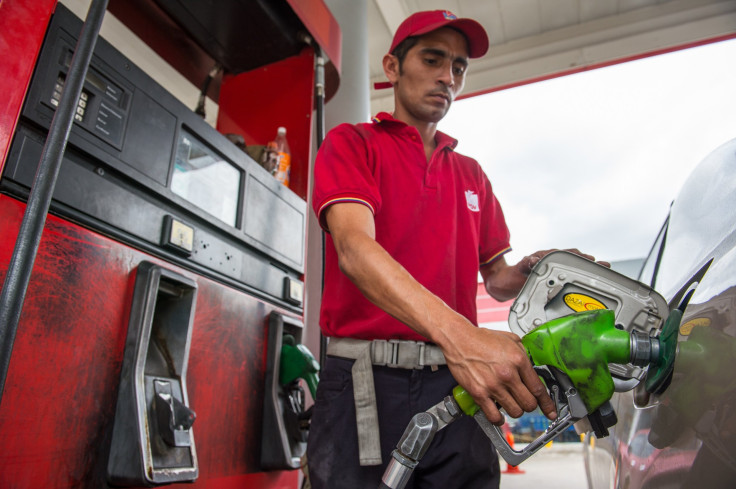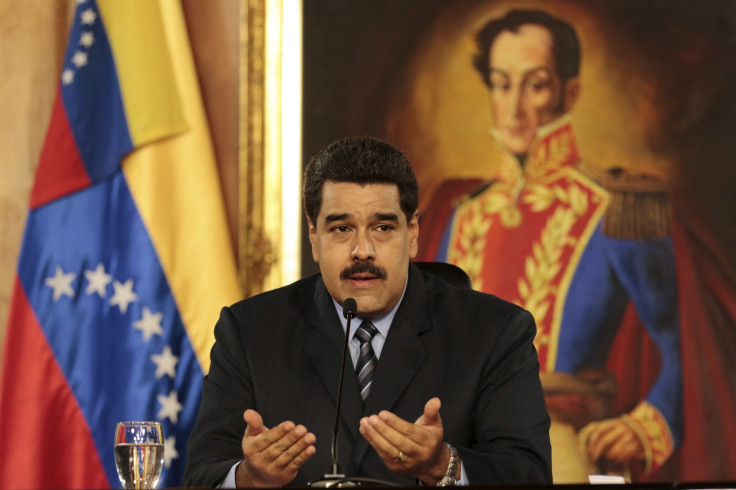Venezuela Hikes Fuel Prices By 6,000%, Devalues Currency To Tackle Economic Crisis

Venezuelan President Nicolas Maduro on Wednesday announced a staggering 6,000 percent hike in petrol prices and a sharp devaluation of the currency to shore up the oil-rich nation’s battered economy. Venezuela, which gets 95 percent of its export revenue through oil, has been hit hard by the collapse in the price of the commodity, which has fallen to $34 a barrel from $90 a barrel two years ago.
The move would raise the price of premium gasoline to 6 bolivars a liter from 0.1 bolivar a liter, and regular gasoline to 1 bolivar a liter from 0.07 bolivar. Additionally, starting Thursday, the official exchange rate used for food and medicine imports will be weakened to 10 bolivars per dollar from the current 6.3, while a second parallel floating rate will be allowed to operate alongside.
“This is a necessary action, for which I take responsibility,” Maduro said Wednesday in a televised address. “The time has come to establish a system that guarantees access to hydrocarbons at a fair price but that also guarantees the funding of investment in producing that gasoline.”
Maduro also said that the revenue generated from the new fuel prices would be used to bolster social programs such as housing, health services and education.
“Faced with a criminal, chaotic inflation induced a long time ago, we must act with the power of the state to control and regulate markets,” Maduro reportedly said.

However, the price rise also risks triggering nationwide protests similar to the ones seen in 1989, when a hike in the prices of food and petrol sparked deadly riots and helped Hugo Chavez rise to power.
Venezuela has the world’s largest known oil reserves, and has been pushed to the brink of collapse by plummeting oil prices. As revenue from oil exports drops, the local currency, the bolivar, has also plummeted in the black market.
Last month, the Venezuelan government declared a 60-day nationwide economic emergency after official figures released by the country’s central bank showed that the economy had contracted by 4.5 percent in the first nine months of 2015, and that annual inflation had soared to a staggering 141.5 percent in September — the highest in the world.
And, according to a recent estimate by the International Monetary Fund, inflation is expected surge to 720 percent in 2016.
While the central bank and the government have repeatedly blamed “illegal speculation” over the value of the currency for the prevailing crisis, analysts and political opponents have consistently blamed stringent currency controls that restrict access to U.S. dollars and heavily subsidized fuel prices for the precarious state of the domestic economy.
“If the new system really floats [the bolivar] it could have a serious impact. It could be a step towards dismantling currency controls,” Henkel Garcia, director of business consultancy Econometrica told the Wall Street Journal.
© Copyright IBTimes 2025. All rights reserved.






















